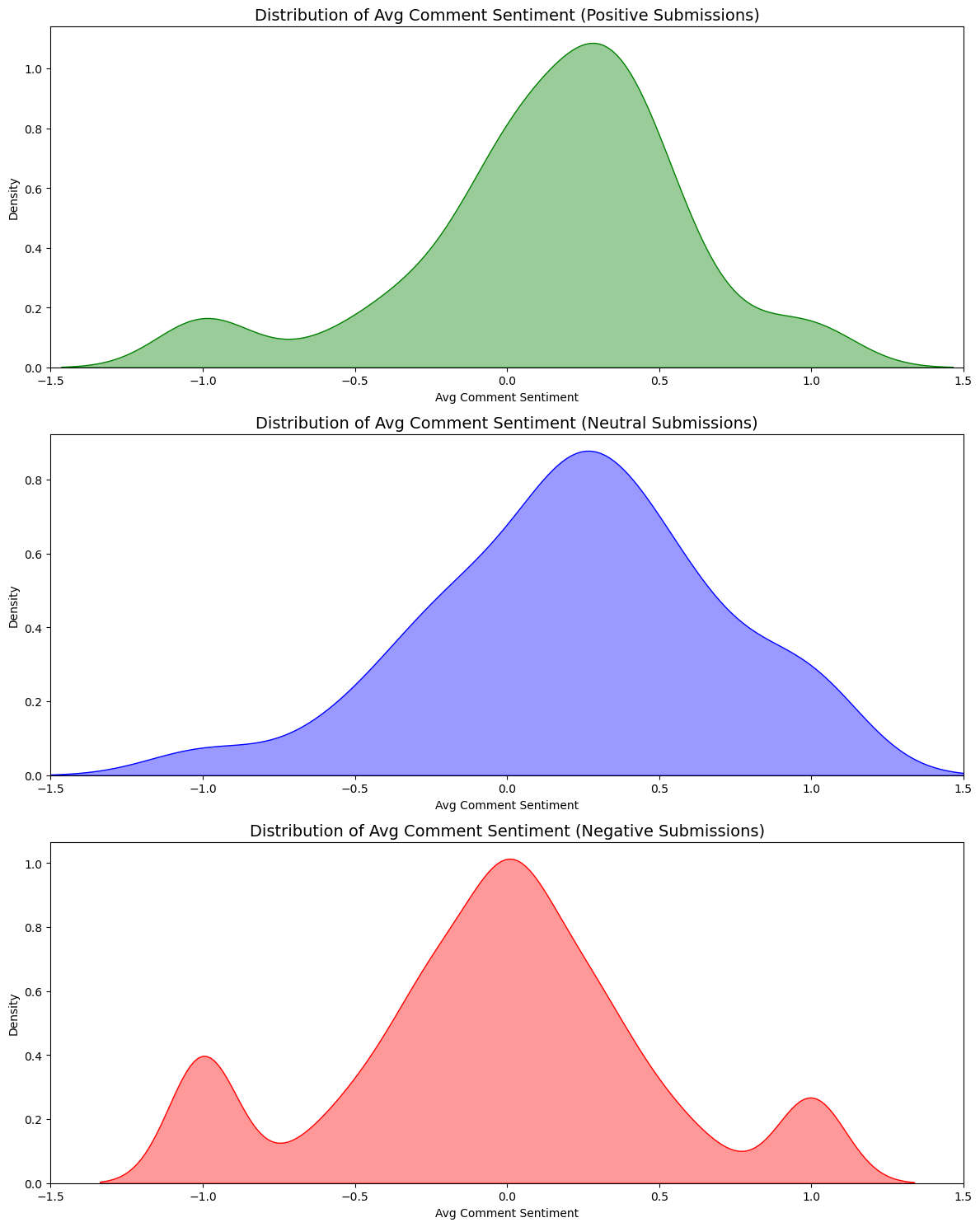NLP
Unraveling How Users React to Sentiment
Everything starts with the question: What really makes a post resonate with an audience? Is it the uplifting tales of positivity, or do people secretly revel in the drama of negativity? In this section, we take you on a journey into the emotions and reactions of Reddit users, specifically in the r/TIFU and r/confession community, to uncover what kinds of stories capture attention and why.
The following questions were asked when starting diving in to the data:
1. What Type of Sentiment Attracts the Most Upvotes?
Are positive posts the secret to winning hearts (and upvotes), or do audiences resonate more with negativity? To uncover the secrets of audience preferences, we turned to Spark NLP, a tool that helps us analyze whether posts with positive or negative sentiment receive more upvotes.
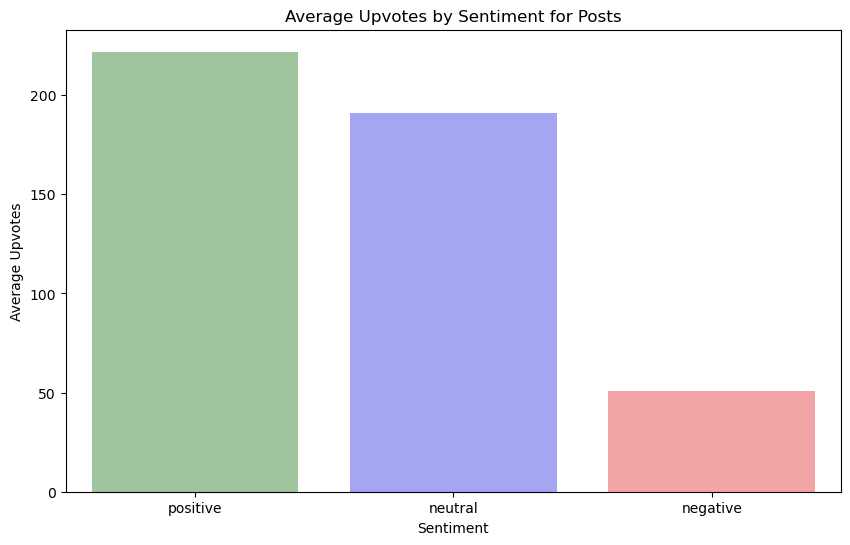
What We Discovered: Our analysis revealed that positive posts seem to lead the pack in terms of upvotes, suggesting that audiences on these subreddits are drawn to uplifting stories. It appears that, amidst the personal confessions and humorous mishaps, users tend to reward posts that bring a bit of joy or lightheartedness.
A New Question Arises: While positive sentiment seems to attract engagement, we’re left wondering—does the audience truly feel the same way as the author? Or do they interpret and respond to the sentiment differently?
3. Are Titles and Content Sentiment Aligned?
- The Power of a Title: Some users know how to craft attention-grabbing titles, but do the emotions conveyed in these titles align with the post content (selftext)? Or do mismatched sentiments—like a sad story disguised as a humorous title—serve as an effective “clickbait” strategy?
- Investigating Title-Content Alignment: We analyzed the alignment between a post’s title and its content to see how sentiment impacts audience interest. The text emotions were labeled using EmoLex(Mohammad and Turney 2013). Are users on these subreddits likely to click on a post with an exaggerated or humorous title, only to find a more serious story underneath? This part of our analysis examines the role of sentiment in titles as a storytelling device.
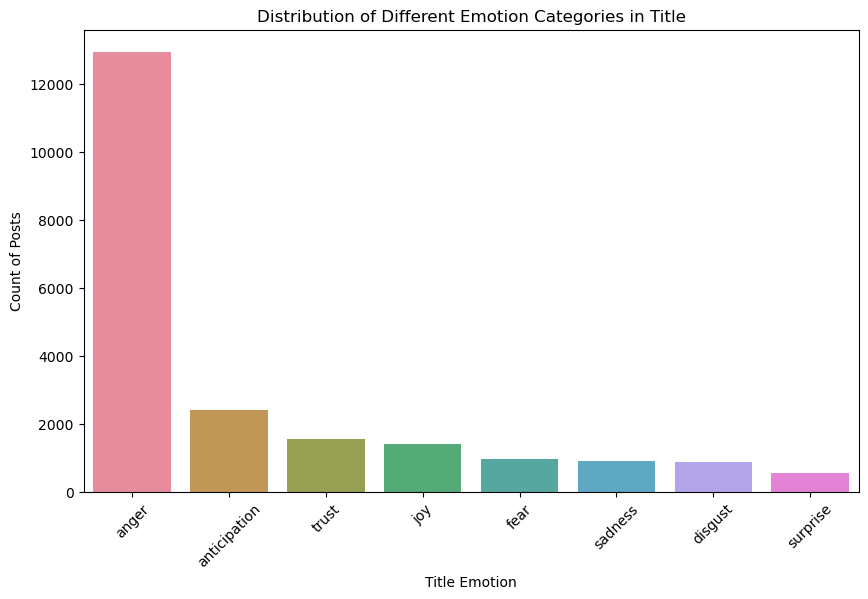
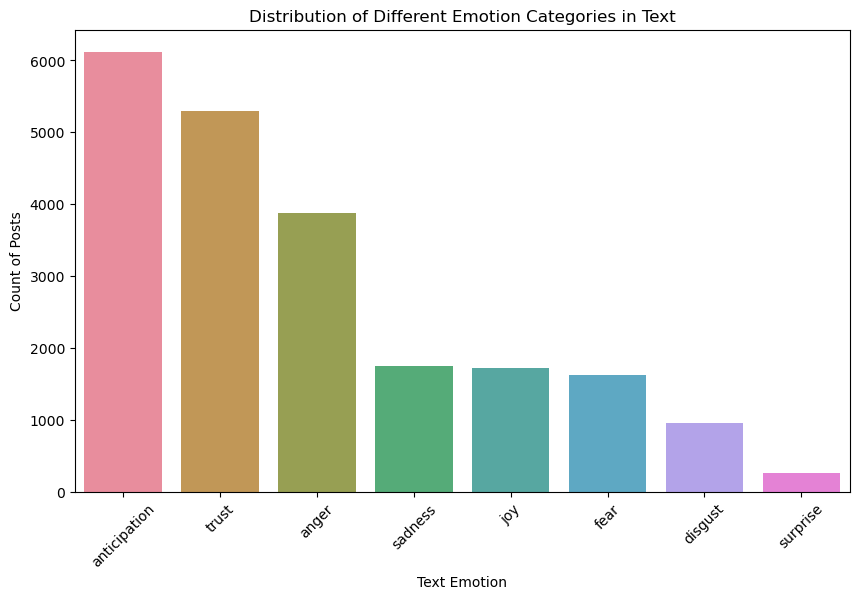
- What This Means: This exploration reveals how users might leverage sentiment in titles to capture attention, creating a curiosity gap that leads audiences into the main content. It’s a creative strategy that, intentionally or not, shapes the way people engage with posts on r/TIFU and r/confession.
4. The Spread of the Emotion: Embarrassment
- Is the sentiment of embarrassment expressed in posts mirrored in the comments, or do readers interpret this emotion differently? To explore this, we used BERTweet embeddings to calculate the similarity between “embarrassment” and both post content (selftext) and related comments.
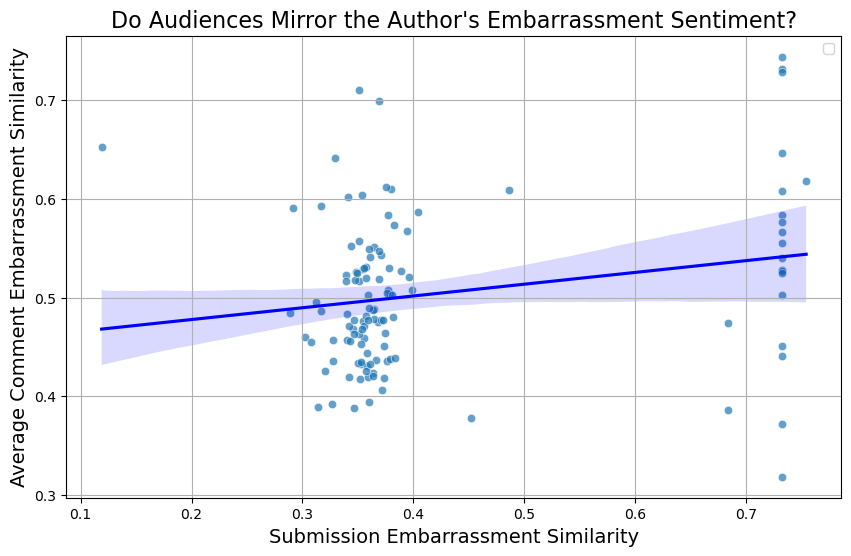
Our Approach: We sampled 500 posts, calculating the semantic similarity between each post and the term “embarrassment.” Then, we filtered for comments on these posts and calculated the average similarity between each comment and the term “embarrassment.” This allowed us to analyze whether the audience’s responses aligned with the author’s feelings of embarrassment.
What We Found: The scatter plot shows a trend indicating that, in general, posts with higher similarity to “embarrassment” tend to elicit comments that reflect similar levels of embarrassment. However, the correlation is not perfect, suggesting that while many users respond empathetically to embarrassed authors, some responses diverge, bringing a different emotional perspective to the discussion.
The Bigger Picture: Sentiment, Emotion, and Resonance on r/TIFU and r/confession
This journey through sentiment and emotion on r/TIFU and r/confession illuminates the unique dynamics that drive engagement on these subreddits. From analyzing which sentiments attract the most upvotes to exploring how comments reflect or diverge from the author’s emotions, we’re uncovering the storytelling techniques that make certain posts resonate.
Unpacking Emotional Reactions:
- Types of Mishaps: From minor everyday mistakes to major life blunders, different types of mishaps evoke various emotional responses. Do users on r/TIFU react with empathy, humor, or a blend of both? And does r/confession show a different emotional spectrum, where confessions draw more sympathy and understanding?
- What We Aim to Find: By examining these reactions, we hope to reveal how different types of failures and confessions influence the way people engage emotionally, helping us understand the social norms and empathetic responses within each community.
How Do People React to Mishaps?
Mishaps, especially those shared on r/TIFU, evoke a wide range of emotions, from embarrassment to laughter. But do certain types of mishaps trigger stronger reactions, like regret or sympathy? By categorizing posts into different types of shared failures, we dive into the emotional responses tied to these mishaps to understand how audiences react to personal blunders.
Our findings reveal not just what makes stories popular, but also how online communities like Reddit foster empathy, humor, and connection. Whether you’re a Reddit enthusiast, a data lover, or just curious about digital interactions, our exploration provides a data-driven look into the factors that shape engagement and resonance in these vibrant online communities.
